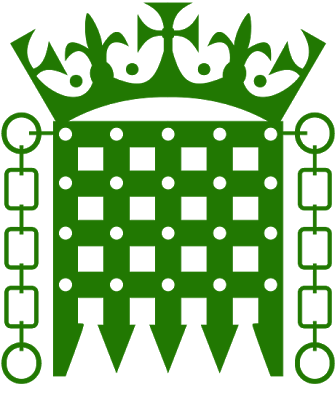Brexit Update & More Good News

Theresa May has achieved an agreement from the EU commission that enough progress has been made in the key areas of citizens’ rights, the Northern Ireland border with the Republic of Ireland, and our financial commitments.
On citizens’ rights, the Prime Minister has always been clear that the rights of EU citizens living here should be balanced with the rights of UK citizens living in the EU; we wouldn’t make a unilateral decision without a reciprocal agreement from the other side. Those who have worked and made their lives here should be able to become British citizens. So, I am delighted that by the time we leave the EU, EU citizens who have been here for five years and have settled status will be treated as if they have British citizenship. For those who haven’t been here five years by that time but are working towards it and still wish to make their lives here, they will be able to do so too.
The question of the border between Northern Ireland and the Republic of Ireland is a priority for the government. The unfettered movement of goods and services which I am confident will form part of our comprehensive free trade agreement with the EU can be agreed as part of our trade talks in a future stage of the negotiation; the common travel area across the island of Ireland that has existed since long before the EU demonstrates our clear commitment to no hard border between N Ireland and the Republic. Our agreement with the EU now guarantees that there will be no hard border, that we will uphold the Belfast Agreement, and we will continue to preserve the constitutional and economic integrity of the UK. There is no doubt that Northern Ireland will remain a core part of the UK, and there is no doubt that the whole UK will be leaving the Single Market, customs union and the EU in March 2019.
A complicated area of this phase of the negotiations has been our financial contribution. To be clear, we have pledged to honour our agreement to contribute to the EU’s current multi annual financial framework through to the end of the spending period in 2019/2020. As we set out to expand business with the rest of the world and define what kind of country we want to be, I am clear that honouring our commitments is vital. So, we will also contribute to a number of programmes and bodies where we have existing liabilities. This will work both ways and so money will also be returned to the UK taxpayer where due.
One of the many reasons cited for leaving the EU is that British taxpayers do not wish to be forever committed to a growing net contribution to the EU over which we have insufficient control. However, I certainly do believe in fulfilling our international obligations, and this agreement does just that. But as has been acknowledged on all sides "nothing is agreed until everything is agreed", so we will be looking for an implementation phase to give certainty to UK businesses, and a strong trade deal to underpin the valuable business between us and our EU friends and neighbours.
So, on to the recent #DespiteBrexit good news here in the UK!
Continuing the recent trend of tech firms shoring up their UK operations, Facebook has announced that they are opening a new London office with 800 new jobs in 2018. By this time next year, the global social media giant anticipates that it will have around 2,300 employees in the UK, including its biggest engineering hub outside the US.
The UK remains Europe's top country for innovative tech start-ups; attracting more talent and investment than any other and claiming the crown as the capital of "deep tech". So far this year, more than $5.4bn has been invested in our tech sector, more than double that of our nearest rival Germany. We're also the number one destination for tech talent, attracting 20 per cent of all international migrants for European tech.
In pharma, we're adding more than 1,700 new jobs in the next few months with MSD opening up a new life sciences discovery research facility supporting 950 highly-skilled research jobs, and Merck choosing London as the site of its new headquarters with 150 new research jobs and 800 other staff. Merck's European clinical operations will also be moving to its site in Hertfordshire.
The UK now ranks at the top of leader board for established new businesses out of all major developed economies. 218,000 new businesses started in the UK in 2016, a 6 per cent increase on 2015. Britain is the most prosperous major European country, ahead of Germany, France, Italy and Spain in terms of economic and social wellbeing; we are the 5th best country in the world to do business in. The UK had record foreign direct investment last year with a massive increase to £145.6bn net in 2016 compared to £25.3bn in 2015.
As expected, the City is doing just fine and is going absolutely nowhere after Brexit. City firms are embarking on a hiring spree, with more than two thirds of financial services firms recruiting additional staff in the next twelve months.
Trade figures recently released showed that, in the year to September, all UK regions are exporting more goods than the same period last year. England exported 14 per cent more goods than a year earlier, reaching £241.1bn, while Scotland's goods exports rose by 19.9 per cent to £28bn. Exports of goods in Wales rose by 18.9 per cent to £16.4bn and Northern Ireland's by 13.3 per cent to £8.5bn.
The British music industry is doing exceptionally well, having soared to £2.5 billion, helped in no small part to the success and popularity of Ed Sheeran and other talented UK artists.
The hotel sector is performing very well thanks to the increased numbers of tourists holidaying in the UK; hotel insolvencies are down 18 per cent from last year. The number of European visitors to London rose by 24 per cent this year, according to data from online travel agent eDreams, helping the city become the most visited destination in Europe.
This is just a flavour of some of the continued good economic news we are seeing across the UK, proving that British businesses are making a success out of Brexit.





